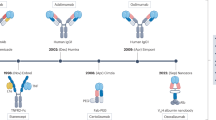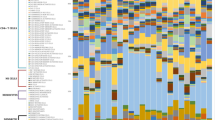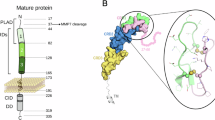Abstract
Current therapies for autoimmune diseases are not cures but merely palliatives, aimed at reducing symptoms. For the most part, these treatments provide nonspecific suppression of the immune system and thus do not distinguish between a pathogenic autoimmune response and a protective immune response. Recently emerging evidence not only has indicated the involvement of members of the TNF receptor/ligand superfamilies but also has revealed exciting innovative strategies for the treatment of autoimmune diseases and other chronic inflammatory diseases without depressing the immune response in general. In this review, we will discuss the regulatory mechanisms of TNF receptor/ligand family members, such as HVEM/ LIGHT, 4-1BB/4-1BBL, and GITR/GITRL that regulate T and B cell functions and participate in the process of inflammatory diseases. We will also discuss how intervening in the costimulatory pathways mediated by these molecules might have some potential as a therapeutic approach to immune disorders.
Similar content being viewed by others
Article PDF
Author information
Authors and Affiliations
Rights and permissions
This is an Open Access article distributed under the terms of the Creative Commons Attribution Non-Commercial License (http://creativecommons.org/licenses/by-nc/3.0/) which permits unrestricted non-commercial use, distribution, and reproduction in any medium, provided the original work is properly cited.
About this article
Cite this article
Kwon, B., Kim, BS., Cho, H. et al. Involvement of tumor necrosis factor receptor superfamily (TNFRSF) members in the pathogenesis of inflammatory diseases. Exp Mol Med 35, 8–16 (2003). https://doi.org/10.1038/emm.2003.2
Published:
Issue date:
DOI: https://doi.org/10.1038/emm.2003.2
Keywords
This article is cited by
-
Increasing the expression of programmed death ligand 2 (PD-L2) but not 4-1BB ligand in colorectal cancer cells
Molecular Biology Reports (2020)
-
Characterization of Herpes Virus Entry Mediator as a Factor Linked to Obesity
Obesity (2010)
-
Promoter sequence variants of LIGHT are associated with female vascular dementia
Journal of Biomedical Science (2008)
-
Depletion of CD25+ cells from human T-cell enriched fraction eliminates immunodominance during priming with dendritic cells genetically modified to express a secreted protein
Cancer Gene Therapy (2005)
-
Cellular immunotherapy: antigen recognition is just the beginning
Springer Seminars in Immunopathology (2005)



